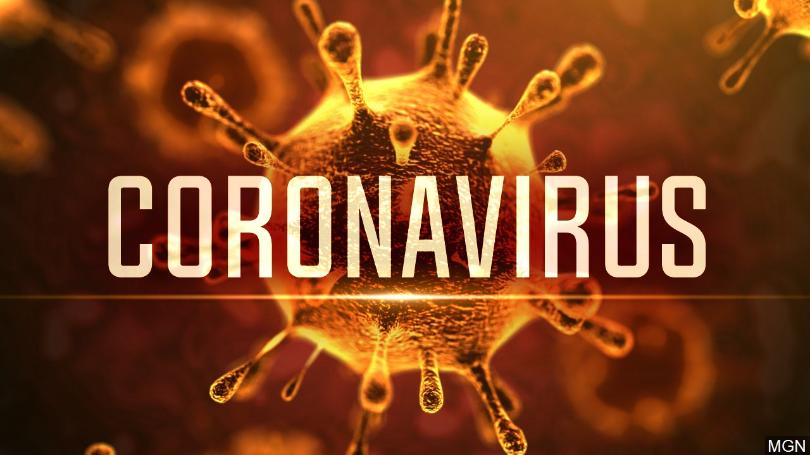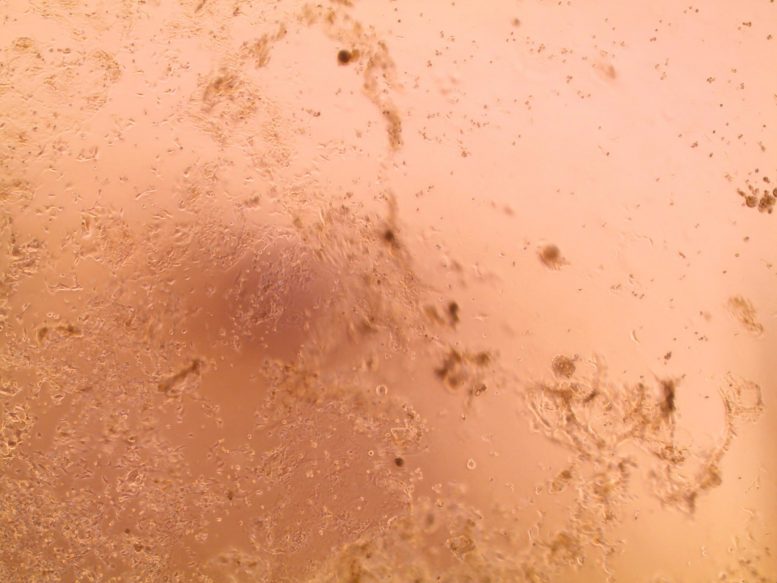BREAKING NEWS : Researchers from Institut of Pasteur Say That New Coronavirus Has Rapid Multiplication Capabilities Both In Host And In Culture
Source: Thailand Medical News Feb 06, 2020 5 years, 2 months, 2 weeks, 6 days, 5 hours, 53 minutes ago
Researchers from the Institut Pasteur in France had been very well prepared when news first emerged about the breakout of the new
coronavirus in China as they had been instrumental in many discoveries and protocols during the SARS and MERS outbreaks.

On Friday, January 24, 2020, the very day that the first cases were confirmed, the virology researchers began the process of culturing the samples that had tested positive for the virus on Vero E6 cells.
.jpg) On the left, a cell layer not damaged by the viruses. On the right, a cell layer with a visible cytopathic effect (CPE); the cells
On the left, a cell layer not damaged by the viruses. On the right, a cell layer with a visible cytopathic effect (CPE); the cells
infected by the virus have been destroyed. Credit: Institut Pasteur/CNR for Respiratory Viruses at the Institut Pasteur.
Dr Sylvie Behillil, Deputy Director of the CNR at the Institut Pasteur told
Thailand Medical News, “Using detection methods, we had observed a high viral load in the samples taken from the patients in hospital in Paris. This enabled us to identify which samples should be cultured first.”
It was said that almost all samples taken from patients exhibited this trait. Chinese researchers in Shanghai also have confirmed that the viral load in all infected patients were extremely high indicating the coronavirus multiplies at very fast rates in the body of the infected.
The isolated viruses continued to be cultured over the weekend of January 25-26, 2020. By the morning of Monday, January 27, the culture had already grown! “We didn’t think that it would grow so quickly,” continues Sylvie Behillil. The rapid growth of the culture may be explained by “the high viral load in the samples,” but also by “the quality of the samples,” adds Vincent Enouf, Deputy Director of the CNR at the Institut Pasteur.
In addition to this, another observation as noted by Dr Behillil ,“We could see the cells becoming damaged and then grouping together, which can indicate that they have been infected. But we did not observe this cytopathic effect for all the inoculated samples; that reassured us that we had managed to isolate the strains, and this was then confirmed by additional analyses.”
 A cell layer with a visible cytopathic effect (CPE); the cells infected by the virus have been destroyed.
A cell layer with a visible cytopathic effect (CPE); the cells infected by the virus have been destroyed.
Credit: Institut Pasteur/CNR for Respiratory Viruses at th
e Institut Pasteur.
The fast multiplying property could have numerous implications and also shows that the
coronavirus is indeed virulent and potent.
The French Institut Pasteur’s scientists with access to the
coronavirus responsible for the infection and the isolation of the virus now , is able to pave the way for new diagnostic, therapeutic and prophylactic approaches.
The new
coronavirus 2019-nCoV, responsible for the cases of pneumonia that emerged in China, differs from two other viruses that are well known for causing respiratory outbreaks in recent years: the SARS-CoV virus, responsible for the SARS outbreak in 2003, and MERS-CoV, responsible for an outbreak that has been underway since 2012 in the Middle East.
Institut Pasteur was actively involved in tackling these previous outbreaks, which yielded valuable lessons for the current situation. “For both SARS-CoV and MERS-CoV, cells known as Vero E6 were identified to culture the two
coronaviruses,” explains Dr Sylvie van der Werf, Director of the National Reference Center (CNR) for Respiratory Viruses at the Institut Pasteur. “In January 2020, we brought them out of our collection, which is kept under strictly controlled conditions, so that we would be ready as soon as we detected a positive sample for
coronavirus 2019-nCoV.”
CNR or The National Reference Center for Respiratory Viruses at the Institut Pasteur in Paris is one of WHO’s reference laboratories for
coronavirus 2019-nCoV.
A team of eight people from the CNR and two from the P2M sequencing platform have been working on the
coronavirus this week and will continue to monitor the outbreak in France.
As a result of response to the announcement of the first cases and the declaration of the outbreak by the Chinese authorities, the Institut Pasteur has set up a task force for the novel
coronavirus.
The recent isolation of
coronavirus 2019-nCoV clears a vital hurdle for research, which has now begun. The Institut Pasteur immediately set up a task force to mobilize its experts with the aim of developing diagnostic, prevention and treatment tools as quickly as possible to tackle the novel
coronavirus.
Various Institut Pasteur teams are represented on the task force, which will focus its research on various scientific areas such as:
-Understanding more about the
coronavirus and its pathogenesis
-Developing new diagnostic tools and searching for antibodies that may have therapeutic applications
-Vaccine development;
-Epidemiology and modeling to develop outbreak control strategies.
For more updates about the
China coronavirus epidemic or the
Thailand Coronavirus scenario, keep on checking at:
https://www.thailandmedical.news/articles/coronavirus

.jpg)
